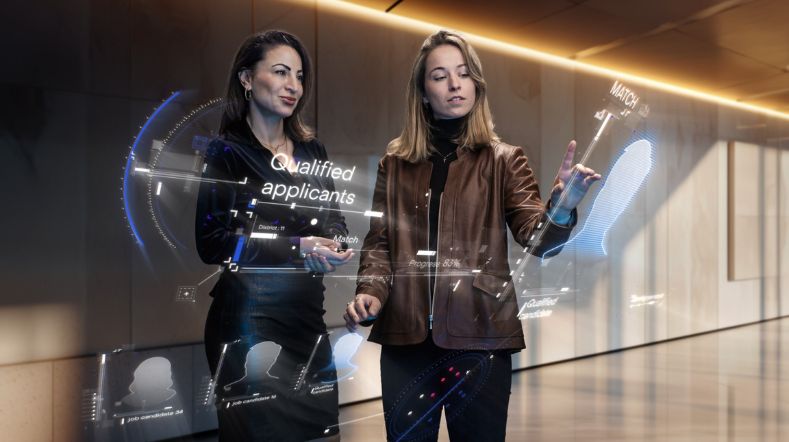
Brains4Work: serious game to prevent dropout at mbo
How do you solve the personnel shortage of the future? A team from TNO devised a serious game to prevent secondary vocational education (MBO) students from dropping out without a diploma. Project leader Marloes Vooijs of the unit Healthy Living & Work talks about the serious game her team developed in collaboration with MBO Almere and creative agency Raccoon Serious Games.
Brains4Work: Short-cycle innovation
This is the time to make groundbreaking innovations. With annual Brains4-challenges, TNO challenges its employees to solve a societal problem in a short time, with partners. Get inspired by this fast-paced way of innovating, with this case from Brains4Work.
The theme of TNO's Brains4challenge in 2023 was 'Work'. Project leader Marloes Vooijs: 'The demand for practically trained people is high and only increasing. At the same time, we see that not all MBO students, workers of the future, complete their education.
What obstacles exactly do students encounter? We devised a serious game to engage in a conversation with MBO students to come up with solutions for the individual, education and policy.'

'The fictional students have different problems, for example in terms of motivation or obstacles they experience in their studies.'
The serious game
The game consists of six different banners placed in a classroom. Each banner features the image of a fictional student with a problem. The players work in groups and assume the role of help desk staff who train an AI model to always be able to help students properly.
Vooijs: 'The fictional students have different problems, for example in terms of motivation or obstacles they experience in their studies. Others are in a difficult home situation. That can make it very difficult to attend classes. Or maybe you have to get by on little money. Then temptations via Instagram or TikTok are great, where all kinds of characters promise that you can earn a lot of money right now.'
The real students learn to solve these problems by helping the fictional students. By doing so they learn the language to discuss obstacles they experience themselves, with teachers for instance. This happens in the reflection after the game. Vooijs: 'We received really valuable reactions. Like from a mentor who didn't know what was going on at a student's home because she didn't share that in the mentor talks, but she did in the game.’

'We wanted to connect to something that is already there, so that it becomes easy to start using this game.'
Connecting to what is already there
The game is played during citizenship or mentoring lessons. Vooijs: ‘We wanted to connect to something that is already there, so that it becomes easy to start using this game.’
They also made Swipr, a questionnaire tool similar to dating app Tinder for reflection, where you can swipe to answer. 'This makes filling in questionnaires a lot more accessible.'
Early involvement
From the very first moment, the TNO researchers worked closely with students and lecturers, as they will eventually use the game. Vooijs: ‘Initially, we wanted to use the game to gather input from the youngsters' world so that teachers and supervisors could make the necessary adjustments. Whereas the school indicated that it needed guidance. The end result now combines both, because the school was involved in the project so early.'
Scale up
The prototype of the game was developed together with teachers, has been tested with classes and adapted with feedback from mentors and students. Now TNO is looking for schools willing to invest and further develop the game together. Vooijs: ‘This will allow you to find out the causes of student drop-outs and thus hopefully guide students better.’
Another ambition for the 'swipe tool' is to apply it widely in projects. Vooijs: 'This tool makes filling in questionnaires more accessible. It also allows us to collect information from groups that are sometimes less heard.'
Get inspired
Over 300,000 workers in the Netherlands experience heat stress at work


TNO Announces the launch of ObjectivEye


Prospective Life Cycle Assessments for future-proof product design


Knowledge advantage in SSbD offers opportunities for Dutch chemical companies


The future of chemicals is Safe and Sustainable by Design


